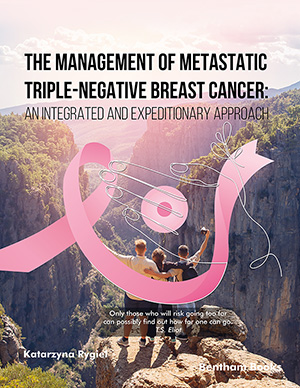Abstract
Triple-negative breast cancer (TNBC) is a particularly aggressive
subtype of breast cancer (BC) in which the expression of the estrogen receptor
(ER), progesterone receptor (PR) and human epidermal growth factor receptor
(HER2) is absent or very low. TNBC consists of approximately 15-30% of the
invasive BC cases in the United States (US) Women with TNBC represent a
heterogeneous population with regard to their ethnicity and biology including the
genetic make-up metabolic or hormonal profile as well as the socioeconomic status
(SES) cultural behavioral educational levels. Notably African-American (AA) women
usually have a higher prevalence of TNBC and a worse prognosis compared to
European-American (EA) or Non-Hispanic White (NHW) women. The goal of this
chapter is to elucidate the possible interplay of inherited and acquired, often lifestyle-related risk factors which can stimulate the initiation and development of the most
aggressive subtypes of TNBC in AA women compared to their EA (or NHW)
counterparts. In particular this chapter explores some ethnic disparities in TNBC
mainly in the example of the US where such disparities have been studied in clinical
research. This chapter also focuses on differences in TNBC risk factors healthcare
patterns clinical outcomes between AA and EA (or NHW) women. It briefly discusses
the multi-factorial etiology of these disparities e.g genetic, hormonal, metabolic,
behavioral, cultural, socio-economical and environmental. Presented short analysis of a
dynamic blend of inherited and acquired variables also provides some directions for the
reduction of these disparities, to improve TNBC outcomes, among women from ethnic
groups, such as AA.
Keywords: Acquired, Ethnic groups, Healthcare disparities, Inherited, Risk factors, Triple-negative breast cancer (TNBC).






















